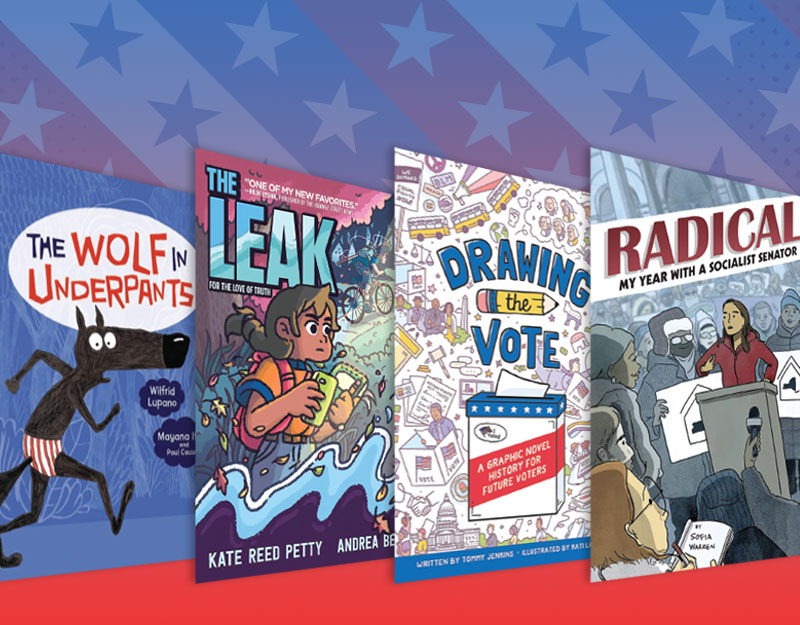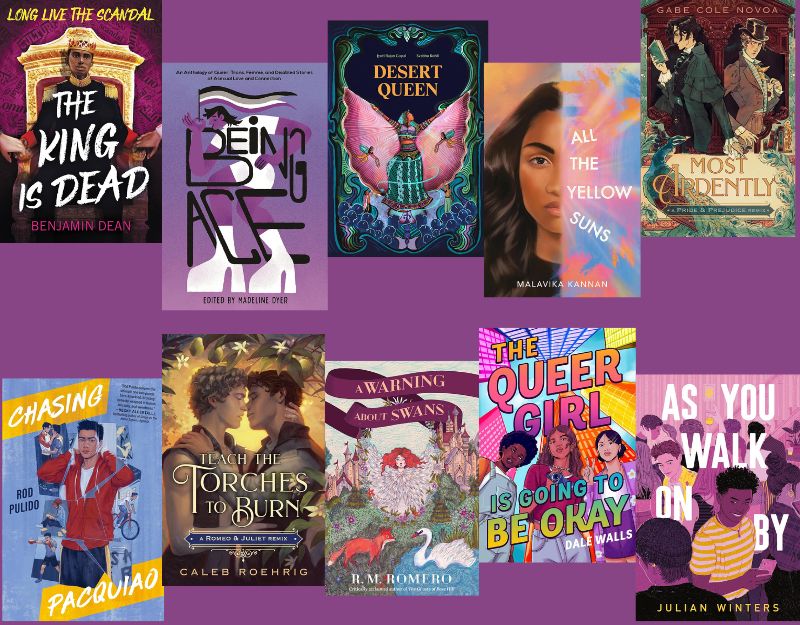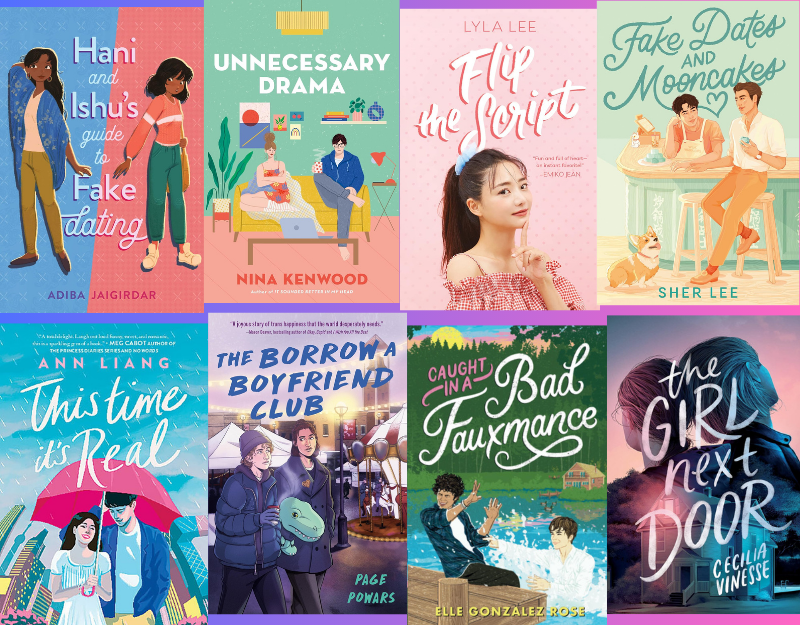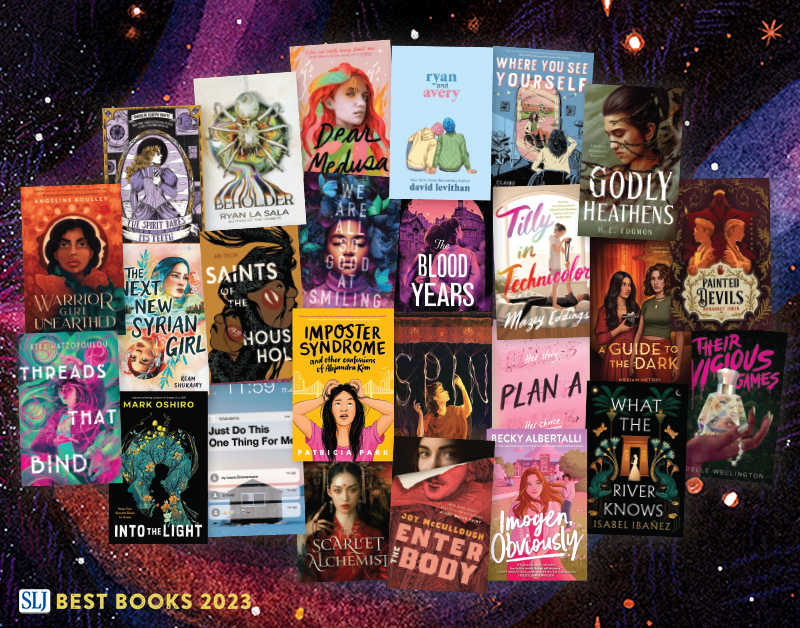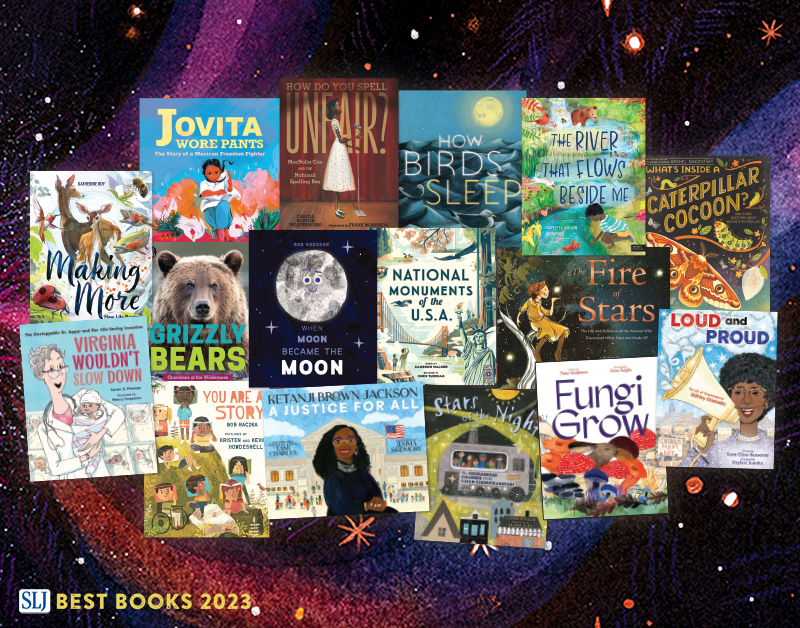Guest Post – What Red Lipstick Has to do with Children’s Literature: Sharing Lessons I Learned While Teaching Creative Writers in Ukraine by Oksana Lushchevska
Folks, today it is my very great honor to host Oksana Lushchevska on the blog. Jules Danielson featured Oksana back in 2015, but her bio there’s a bit out of date. As it now reads, “Oksana completed Doctoral Degree in Language and Literacy with focus in Children’s Literature from the University of Georgia and served as a reviewer of international children’s books for US IBBY and as a columnist for IBBY. Also, Oksana is the author of over 40 children’s books and translates picture books from Ukraine into the English language, some of which have been awarded the Bologna Ragazzi Award. She also extensively cooperates with a few small publishing houses in Ukraine.” And today, she’s joining us to discuss the value of Ukrainian books for children. I can think of no one better to speak on this subject. To Oksana, I yield the floor:
As a prominent children’s writer Madeleine L’Engle wrote: “It was dark and stormy night.” Or, let me rephrase it for you for the purpose of this essay: it was dark night – the electric power was lost; and it was stormy night indeed – Russian troops shot about 90 rockets in Ukraine… while I was getting ready for my webinar Kooky/Funny Children’s Books, which I was planning to teach on Zoom that day.
ADVERTISEMENT
ADVERTISEMENT
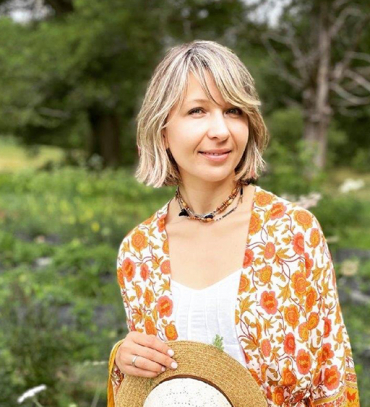
My mother called: “Check if your attendees are going to show up… just check the news”. I checked the news and with the deepest pain I moved on to my presentation slides: what if they show up, I should be ready for them…
“Who needs children’s kooky books during the war?” one and only question that came to me at this particular moment.
“An air defense system has shot down a rocket nearby. We instantly loose electric power… I am still working and waiting for Oksana Lushchevska’s webinar about kooky books to start. I hope the power from generator will last me through the whole webinar,” writes my children’s literature colleague on her Facebook page. She is in Kyiv, Ukraine; and Kyiv has an electricity blackout. But as written in her post, she needs this webinar.
My colleague Alina later states further: “I am sorry, I am with candles, and I apologize I am on and off zoom video, we have no electricity; yet, I need this webinar badly because I need to drag myself out of this (war) negativity and start thinking in a different direction.”
“Do we need children’s kooky books during the war?” the question prevailed.
Children’s books, as we know, are always about complexity: joyful and sad, realistic and imaginative, children’s literature reflects various glimpses of lives of our global communities. Children’s literature is always about what values we cherish and celebrate in our peaceful everydayness. Often children’s books are, as Jella Lepman (1891-1970), a German journalist, author, and translator who founded the International Youth Library in Munich right after WWII, said bridges to understanding and the couriers of peace. But what is the role of children’s literature in the war time?
As a scholar of children’s literature, little did I knew the real meaning of children’s books in opposition to peace — during war, during Russian war in Ukraine to be exact. This war not only brought a tremendous human and cultural loss, it also constructed a few new lessons about children’s literature, which I am eager to share with children’s literature community having a high hope that these lessons will stay rather as gained knowledge but never as obtained practice.
Lesson # 1: Red lipstick and a children’s book are a match for this high-stakes season.
February 23, a day prior to Russian invasion, which was highly discussed by global news, I taught another children’s literature course. When my students appeared on Zoom, I asked them how they felt. “I’ve put my red lipstick on,” said Olesia, a Ph.D. candidate in literature. “I am scared of tomorrow and I want to know more on how to finish my children’s book manuscript today, as if I am ready for everything.”
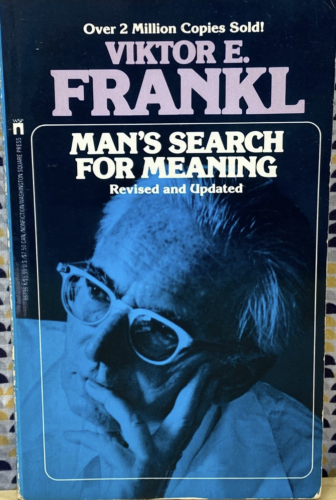
Red lipstick as I know became meaningful during WWII, as a symbol of living on and staying true to oneself. And children’s books became popular after WWII as a symbol of replacing old ideologies, a symbol of peaceful coexistence. Seeing my colleagues dressed up and wearing red lipstick ready to learn more about children’s books during this hard time, I learned that children’s books are shaping our strife for life. Similar to red lipstick, children’s books talk about perseverance and resilience. It might sound absurd but Olesia inspired me to think how a psychologist Victor Frankl (in his book Man’s Search for Meaning) explained the meaning of physical appearance and mind organization as an act of self-preservation. It turned out that children’s books as an essential tool can be added to physical appearance as well as to mind organization.
Lesson #2: Hello Dr. Seuss! How do you do Mr. Disney?
When Putin started the war in my country, I stopped teaching creative writing classes on children’s books but just for a while. Pretty soon, I resumed our children’s literature activities in April. My students made an immediate request: we need to learn about absurdity in children’s books as well as about silliness. “Why these themes?” I asked. “I need to know how to write books for children when everything around is absurd and surreal. War = absurd. Escaping our country = surreal,” she added. I wanted to turn to Shaun Tan’s books, yet I reconsidered. Instead, we worked with Isol’s picturebooks because they are great examples of resifting socially-accepted discourses. Next, we worked with silly books just to add some to understanding that ambiguity is always a topic of children’s books and silliness is a necessity at all times. Were my students satisfied? Yes and no. Still it is difficult to explain the surrealistic horror of the war to contemporary children who are part of Greta Thunberg’s discourses of saving our planet and making good for the common use. Yet, one thing happened – Dr. Suess’s Green Eggs and Ham united us more closely in a sincere laugh and Michaël Escoffier’s Brief Thief reminded us that despite all we all have physical needs and sometimes our needs are the highest or the lowest inner voices of consciousness and we all have a variety of good or evil thoughts.
Lesson #3 The tougher times the better the books.
ADVERTISEMENT
ADVERTISEMENT
As a reviewer of both Ukrainian and international children’s books, I am keeping my eyes open for some really good titles around the globe. Ukrainian children’s book market was fast developing until February, 2022. However, our market had a huge percentage of translated children’s books, mostly from the USA. Now the situation differs. Ukrainian publishers do not try to win over the reading audience for the sake of earning more. Instead, they try to meet the needs of their audience by trying to publish the books which will spark an interest in deeply conversing about major meanings of victory and a value of peace. Additionally, publishers are trying to publish the books on the topics of how to live fully in the time of war. Such books will add a lot of understanding of meaning of life in a time of turmoil for both local and global reading communities. Therefore, I think it is time for the US publishers to look more closely at children’s books from Ukraine and try to bring them for the readers in the USA. It is essential not to think about war just from a historical perspective and learn not to avoid but face the conversations in our interconnectedness and perseverance. I don’t remember the Cold War (I was too young), but I learned from Debra Wiles’s book Countdown that it was a real dark scary time here in the US. While the history repeats itself, it is not the same as well. Today in comparison to the past, we really can support the nation that fights against the evil by doing many things (online) (e. g. donate, share, support, publish, avoid indifference, etc.) and publish books from the country whose bravery we have been observing since the beginning of 2022 (below I will share the list of outstanding recently published Ukrainian children’s books). I feel that we here in the USA have a responsibility to help our young readers to grow into empathetic adults who will most definitely create better, life-altering history for humanity to avoid tragedies such as this.
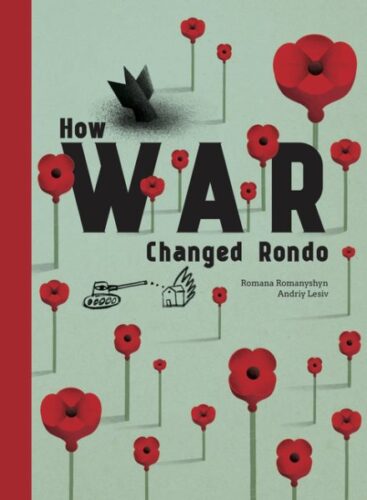
In spring, 2022, I was invited by Children’s Literature Assembly to write on how to open the conversation about the war in Ukraine. I talked about the picturebook How War Changed Rondo by Romana Romanyshyn and Andrij Lesiv, which I translated. It was published by Enchanted Lion Books and it indeed served as a great opener to the conversation. Yet, because the conversation has been now open for nine months already, I feel it is time to continue and to deepen it. Thus, we, as a reading community, should request children’s books which will help us to do so. Why? To see how people of 2022 live through war and what they do (e. g. what their days look like, what they use for entertaining, how they go to schools, etc). To say in Zelenskyy’s words: “if we stay silent today, we’ll be gone tomorrow!” Doesn’t this quote apply to all of us? No doubt, it does.
To conclude, I would like to mention that not so long ago I’ve heard on NPR how Taiwan learns lessons from Ukraine. Does only Taiwan need them? We all need the lessons from Ukraine, we as global community are all in a desperate need to know more about living gracefully and act in highest mode of human interconnectedness. Or, don’t we?
Books from Ukraine: Must-Publish in the USA to learn more about contemporary lessons of perseverance and humanness
The Rooster (By Zoriana Zhyvka and illustrated by Olia Haidamaka. The Old Lion Publishing House, 2022.)
The Yellow Butterfly (By Oleksandr Shatohin. The Old Lion Publishing House, 2022.)
The Dream (By Zoriana Zhyvka and illustrated by Bohdana Bondar. Svicahdo, 2022.)
Going Home by Train (By Marjana Savka and illustrated by Marta Koshulinska. The Old Lion Publishing House, 2022.)
The Battle for the City (By Volodymyr Cherneshenko and illustrated by Tetiana Kopytova. Artbooks, 2022)
A School Break by a Must (By Kateryna Ehoryshkina. Vivat, 2022)
A Secret Book of My Big and Small Victories (By Tania Stus and illustrated by Marta Koshulinska. Knyholav, 2022)
Let’s Hold Hands, Sister (By Oksana Lushchevska and illustrated by Anna Surgan. Krokus, 2022)
The Cat, the Rooster, and the Kitchen Cabinet (By Oleksandr Myhed. The Old Lion Publishing House, 2022.)
Air Raid Children (By Larysa Denysenko, illustrated by Olena London. Vydavnystvo, 2022)
Листи на війну. Діти пишуть солдатам/Letter on the War. Children Write to Soldiers (Edited by Oksana Lushchevska and Valentyna Vzdulka and illustrated by Olena Staranchuk. Zalizny Tato, 2022)
The Apricot Trees Bloom in Night (By Olia Rusian. The Old Lion Publishing House, 2022.)
Gerar, the Partisan (By Ivan Andrusiak and illustrated by Anna Majta, Vivat, 2022.)
Quite Night, my Astronaut (By Oksana Lushchevska and illustrated by Katia Stepenishcheva. Knyholav, 2022.)
My Father Turned into the Star (By Halyna Kyrpa and illustrated by Oksana Bula. The Old Lion Publishing House, 2015.)
I’d like to thank Jules Danielson for connecting me to Oksana and allowing me to premiere this piece on Fuse 8. And thanks, of course, to Oksana herself. Here’s hoping we see many more of these books for kids stateside in the future!
Filed under: Guest Posts
About Betsy Bird
Betsy Bird is currently the Collection Development Manager of the Evanston Public Library system and a former Materials Specialist for New York Public Library. She has served on Newbery, written for Horn Book, and has done other lovely little things that she'd love to tell you about but that she's sure you'd find more interesting to hear of in person. Her opinions are her own and do not reflect those of EPL, SLJ, or any of the other acronyms you might be able to name. Follow her on Twitter: @fuseeight.
ADVERTISEMENT
ADVERTISEMENT
SLJ Blog Network
Name That LEGO Book Cover! (#53)
Exclusive: Vol. 2 of The Weirn Books Is Coming in October | News
Fighting Public School Book Bans with the Civil Rights Act
Take Five: Middle Grade Anthologies and Short Story Collections
ADVERTISEMENT



